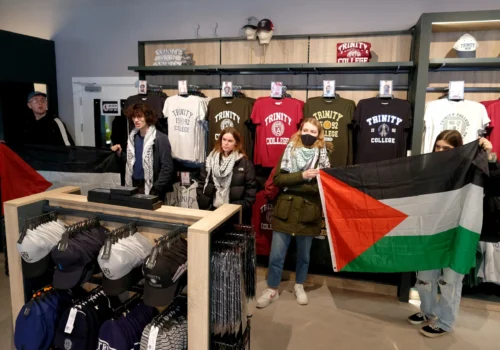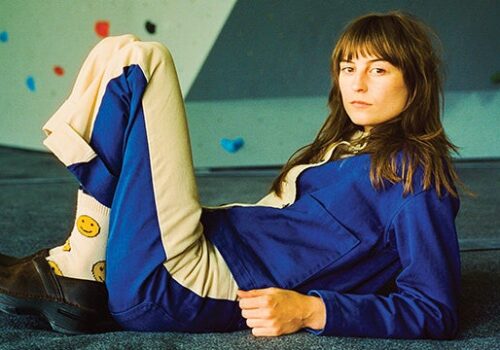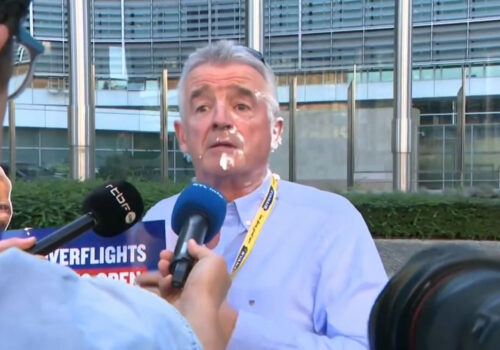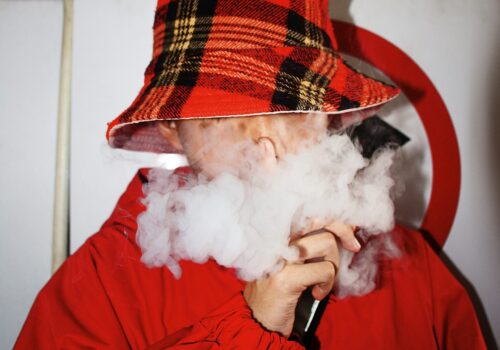Lava La Rue is leading a charge for positive change
Rising London rapper, vocalist, producer and founder of NiNE8 Collective Lava La Rue spoke to Eric Davidson about the pressure of creativity & using her artistry to inspire social change.
London-based fashion, art and music crew NiNE8 Collective have been garnering attention, even in the noise of England’s capital, through their DIY parties, multimedia exhibitions at the likes of London Fashion Week, and musical releases. Meanwhile, members like Biig Piig have been generating international recognition, with co-signs from Julie Adenuga, Annie Mac and Dazed & Confused.
Lava La Rue is the glue and foundations of the entire collective. Look at the credits on her recent video for ‘Burn’ and you’ll see that she not only wrote and performed the track, but co-conceptualised, produced and directed the visuals. ‘Burn’ is emblematic of Lava’s holistic approach to NiNE8. She’s the pied piper of its misfits, not only leading the charge, but also contributing massively to all facets of the creative output.
Ellius Grace visited NiNE8 HQ (Lava’s home in Ladbroke Grove) before a show in Hackney for a shoot, and I caught up with her shortly after.
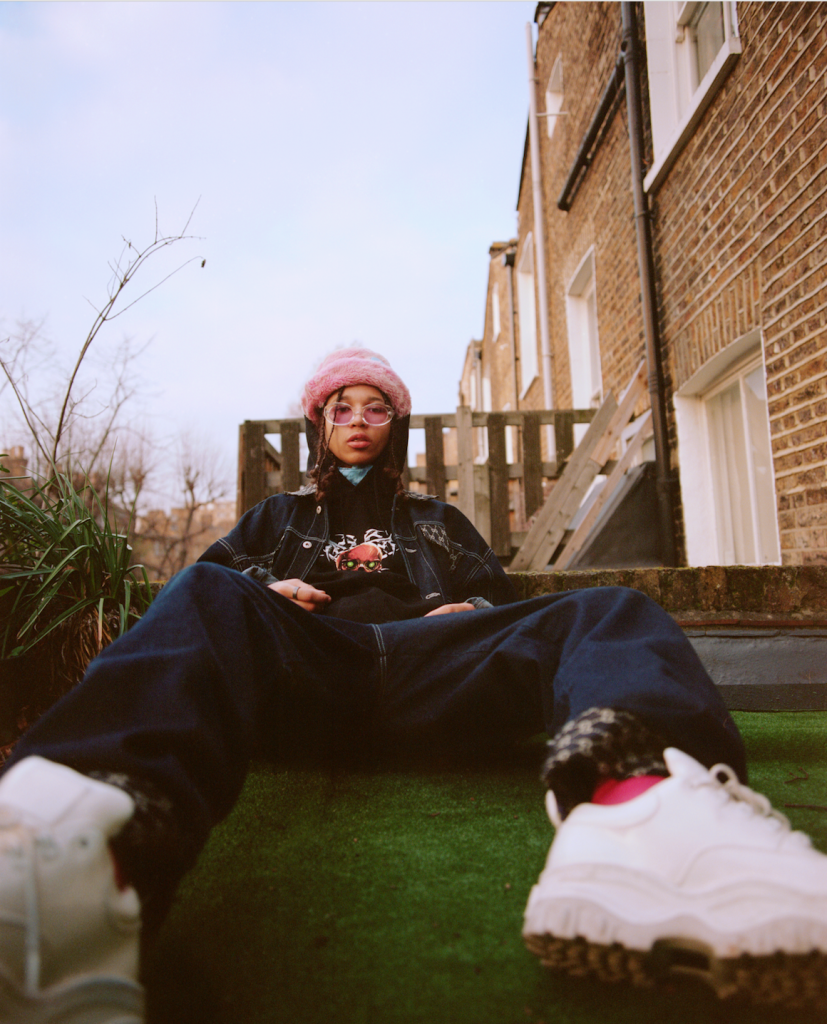
You’ve said before that art school put pressure on you, in that it forced deadlines on your creativity. Do you think that as your popularity grows the pressure might return in different forms?
I think pressure for people is relative to what their ideals are. For some people, depending on what their dynamic is, something like getting money is not their ideal situation. They don’t feel pressure to get money, but that may be because they have the privilege not to think about that. For other people, pressure might come in the form of creating something that they’re really proud of. Some people feel the pressure to get a really good reception [with what they’ve created]. They’re two very different forms of success. Some musicians are very focused on their skills and creating a really good album, other artists see their success relative to how many numbers or streams they’re getting.
Where my actual pressure lays normally fluctuates depending on what I need emotionally or physically. Emotionally, for me creating a project that I’m really happy with is my biggest pressure. My biggest judge on that is obviously me.
It’s a hard question to answer, because growing might not necessarily be in figures, but where I’m at with my creativity. My success is always in how I actualise my concepts. I’m the happiest when I see my ideas in final form, how I imagined them to be.
How has your increased exposure affected that output?
What it has really done is allow me to have other platforms and more reach to do the things that I want to do. I’m still doing it very much DIY and with the same people I started with, but to be able to go to a brand and be like, ‘We have this idea for an event and we want to curate this kind of space, can we work together?’, and to be given the resources is a massive change to having to look after every element. I’m sure you guys know, anyone who’s started something from nothing and the idea of growing it, when you first start you have to bring in the soundsystem yourself, you lose money… It’s to the point where you don’t even get a second to sit back and enjoy it.
I’m so proud of the original exhibition parties, the NiNE8 club nights, but if you were to ask me what they were like I wouldn’t be able to tell you. I was running around like a headless chicken. I love what I do and it meant a lot to me to do it, but all of it was one big blur and stress.
To be honest, even on the bigger scale I’m now getting bigger responsibilities. I still have to pull in a lot of favours and it’s a lot of pressure, but more and more I’m able to pull back and be the curator. My dream is to come up with the concept, curate a whole team and get it executed exactly how I see it.
It’s important to have people, who you trust, implementing everything.
Exactly, but in order to have people that you trust you need to have gone through that, to know what it takes to do each individual role. As a musician, starting out as a DIY independent, I had to be my own promoter, I had to be my own sound engineer, so when it comes to hiring them I know exactly what I need.
With NiNE8, do you feel like you’re offering people something that you didn’t have when you were starting out?
Most definitely, that’s literally the reason why NiNE8 exists. When I first started out as a musician, if I couldn’t see any underground hip hop nights that were platforming women… Nights that didn’t just gas up all the guys… So I was like, ‘Ok, I’m going to start one myself’. All of my mates had similar ideas and could see the problems, some felt like there wasn’t anywhere in the scene for them. Then for others these nights felt too cliquey, or they didn’t feel like safe spaces, or people were too cool, so they wanted to create something where people could feel like they could be themselves.
We wanted it to be immersive, with fashion, visuals, all of that. We looked back at sick underground parties they had in the 90’s, at warehouse raves, we wanted that vibe where people felt completely liberated and free.
On your creative output, you started off with spoken word. Looking back on your career so far, which medium have you found to be most expressive?
I’m both a visual artist or creative director and a musician and people ask me which one I enjoy the most. I said this analogy once and I stick by it, it’s like asking some- one what they prefer, oxygen or water. You need both to survive, but with one you’d suffocate instantly and with the other you’d slowly dehydrate and wither into nothing… Without my music I’d instantly suffocate, because music is an instant expression. With art, visuals and events, I need a little bit of that every day. It’s not instant, but you appreciate having that nourishment.
Which outlet do you think hammers home your outlook the most?
They all really co-exist. Lava La Rue is just as visual as it is musical. Right now, it might seem like music is the most important, but the more I’m allowed actualise my ideas then the visuals will come through. I want all of the sounds to have a cinematic flip side to them. When I’m writing stuff I’m thinking of the visuals too, but it’s about having the resources and the time to create those visuals.
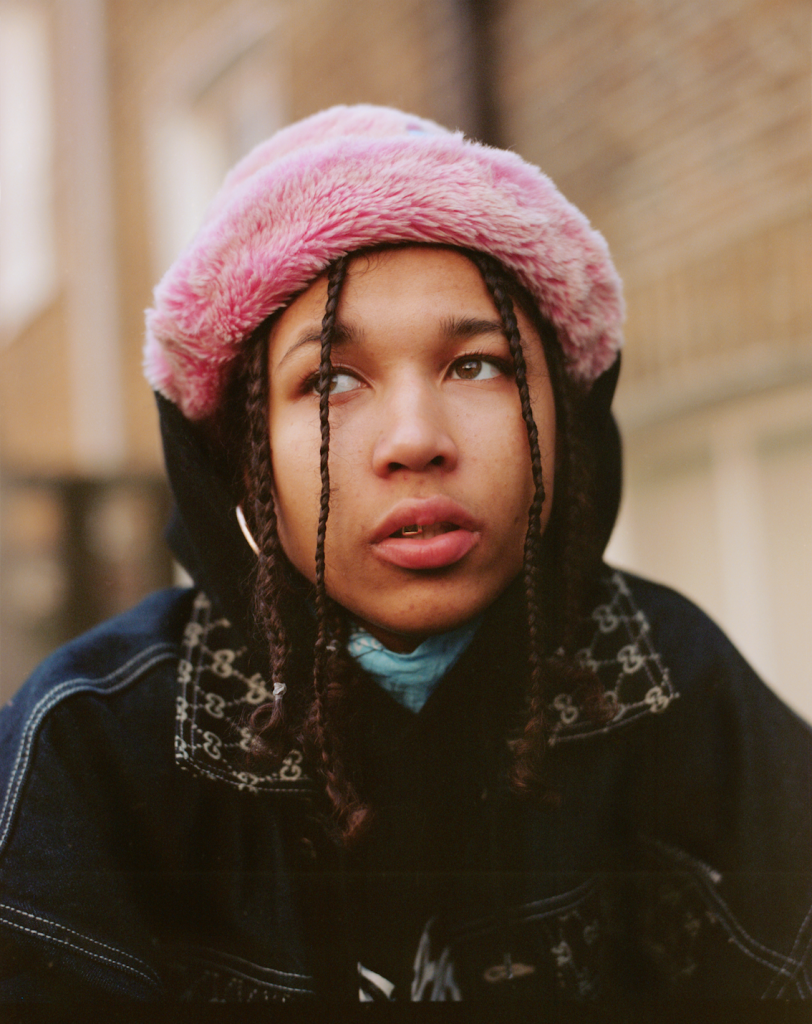
One thing I’ve noticed about your work is when you deal with tender issues, like themes of systematic racism on ‘Desktop’ or fragile masculinity on ‘Letra’, you seem to actually offer solutions. On the latter you say, ‘Self love, baby boy, self love’. Is that an important part of your work, to implement action as opposed to just highlighting issues?
Funnily enough, I was just having this conversation with someone. Obviously with the internet we have this sea of people highlighting things in a call-out culture, but what I find problematic is a call-out culture without an end solution. It perpetuates this ‘us vs them’ as opposed to opening up the conversation. A lot of people spend a lot of time ranting about what’s wrong, but not actually moving forward with it. People spend ages ranting on Facebook, but they’re not going to the protest, they’re not voting, they’re not doing anything to better the situations that they’re complaining about.
I respect all forms of conscious music, I respect anyone who puts out music and doesn’t just chat about money, bitches and weed. Especially as a rapper, if you’re not putting something out that’s instantly flexing then it might take a lot longer for it to do well in the same way that something hella catchy becomes an instant hit. But at the same time there are a lot of people who talk about things and do nothing. I like to have a solution in my lyrics, an answer to the message.
My song ‘Desktop’ is a long poem about systematic racism, representation, colonisation… But the final words are, ‘Get out from behind your desktop’. Get onto the street and actually do something.
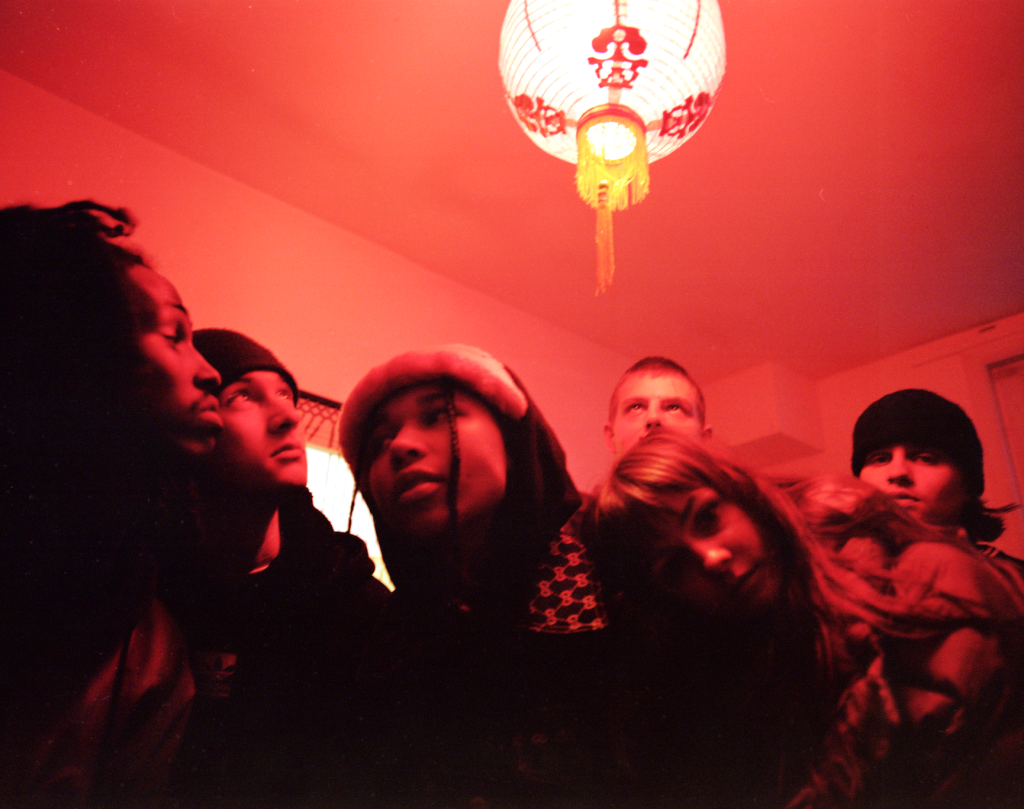
That’s interesting. Even since releasing the song last year [2018] it seems like people are being mobilised again. Look at everything that’s happening in Paris, with Brexit and recently in Ireland: people took to the streets to demand reproductive rights and marriage equality. How important is the artist’s role in inspiring that change?
It’s a big debate for people, because when you have artists going on the news talking about their political ideals you get so many comments being like, ‘They should just stick to music’. But music from the beginning of time, especially hip hop, has always been inherently political. It’s completely bizarre for people to think like that when music was one of the earliest ways to exchange ideas and discuss politics. It is the heritage of music.
Even at the beginning of contemporary music, it was the blues. Jazz, funk, rock ‘n’ roll, alternative, then over time modern R&B and hip hop — that all came from the blues. The name itself shows that the genre was about struggle and that was the beginnings of Western contemporary music.
I’m not saying everybody must be political, art comes in all shapes and forms and sometimes it’s good to spread joy and serve as an escape from problems, but at the same time once you have a massive platform and you have an idea that you think can spread positive change then utilise it. I can understand that a lot of artists are afraid of not being politically neutral, because they’re afraid of losing an element of their followers… But me having my views clear from the get go means that people I pick up along the way know what they’re in for.
You have brothers. On a personal level, are you happy you’ve been able to guide them on subjects like modern masculinity?
Yeah definitely, but it’s not just my little brothers, it’s opening up this conversation with all of the men around me. NiNE8 has a lot of boys in it, the people I’ve started making music with are predominately men. A lot of them come across as ‘typically masculine’, but I deeply consider them allies. They’re ok with a queer, black woman running the collective. Obviously I’m hopeful that the younger generation can grow up from the beginning thinking about these things. It’s all well and good telling younger generations, ‘Don’t conform to toxic masculinity’, but that’s not going to work unless the world we’re making right now is a better place for when they’re older. We’ve got to create that future for them.

